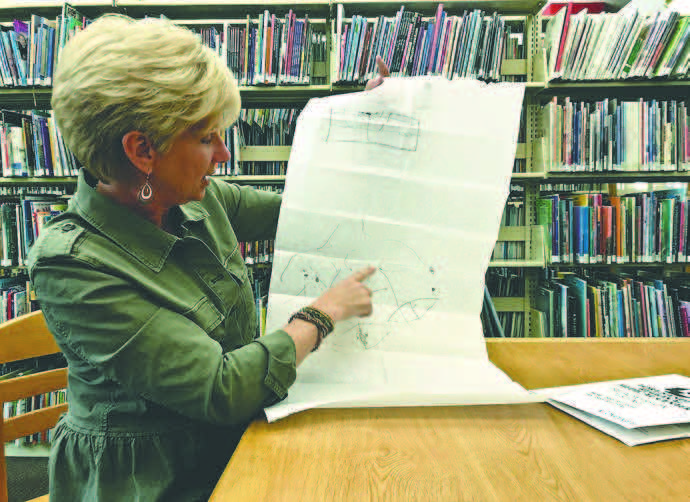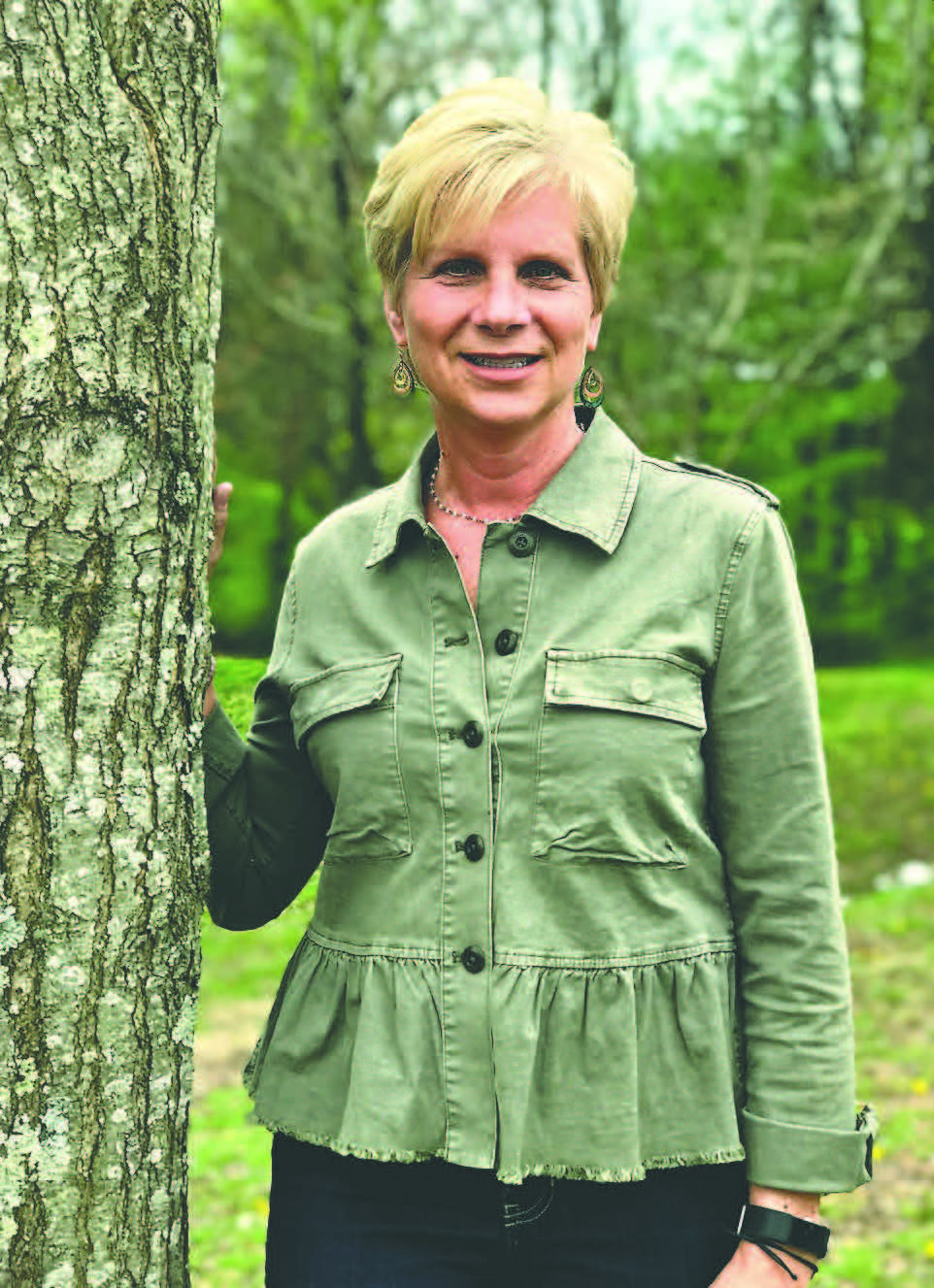Even though Premier Surgical oncologist Paul Dudrick, MD, isn’t known for being a skilled artist, Robin MacLean carries one of his drawings in her purse.

Robin kept the drawing her Premier Surgical surgeon sketched to explain her melanoma surgery.
It’s the paper that was spread across the examination table when Dr. Dudrick drew a picture to help her understand the cancer surgery she would undergo at Fort Sanders Regional Medical Center as the result of a melanoma.
An Island Paradise
MacLean guesses that she did the most damage to her skin during the early part of her career with the United States Navy while stationed in Hawaii.
Like many, MacLean used tanning oils that offered little or no sun protection. Other than the occasional smudge of sunblock on her nose, her skin was fair game for plenty of sun exposure.
In the years that followed, MacLean spent hours outdoors with her husband and children. But in 2017, she noticed some blood on her sports bra from a mole on her back. She tried several different bras, and then put a bandage over the mole.
“It was about the size of a pencil eraser, and it was raised a little,” MacLean says. “I just thought I had scraped it, and it hadn’t had enough time to heal.”
Nothing seemed to help. A little frustrated that she couldn’t see what was going on between her shoulder blades, MacLean asked her husband to come and take a look. He told her the mole looked like it might be infected.
MacLean scheduled an appointment with her dermatologist and it turned out to be a potentially life-saving decision. The physician removed not one, but six moles, and sent them to a lab to be tested.
Diagnosis
Several days later, MacLean was driving through a snowstorm out of state when she got a call from the dermatologist saying the mole on her back was a cancerous melanoma.
MacLean told herself that the dermatologist had already removed the mole, so there was no more threat. She told herself that the follow-up appointment with the surgical oncologist was simply a precautionary measure in case just a little more needed to be removed.
But her appointment with Dr. Dudrick of Premier Surgical at Fort Sanders didn’t go the way she expected. He took a pen and sketched the cancer cells where the mole on her back had been, then drew a six-inch incision he planned to make. A second sketch on the paper showed the three layers of skin he was going to have to cut through.
She would also need to undergo nuclear mapping at Thompson Cancer Survival Center to make sure the cancer hadn’t spread to her lymph nodes. MacLean called her husband in tears and then started praying.
“I got chills just walking into Thompson, because you know everyone there is battling cancer,” MacLean says as she wipes away tears. “It still gets me when I think about it.”

Robin looks at the sunshine differently since her melanoma diagnosis and surgery.
Supported by friends and family, and strengthened by her faith, MacLean went forward with the surgery. It was successful, and Dr. Dudrick delivered the good news that the cancer had not spread, so no further treatment was necessary.
Learning from the Past
MacLean was thrilled, and she was also grateful for answered prayers. Now she looks back, realizing it could have been so much worse, but at the same time knowing the cancer could have been avoided.
“I had a blast in the sun at beaches and on spring breaks with my kids,” MacLean says, “but was it worth risking my life?”
The culture has changed, and so has she. MacLean can’t turn back time, and the scar on her back is a permanent part of her now. But because of her experience, life is more precious and she’s now able to alert others to the dangers of overexposure to the sun.
“You need to pay attention to your body, because something like this can happen quickly, and it can be life threatening,” MacLean says. “And if you see something, don’t ignore it.”
To learn more about the surgical treatment of cancer, visit the Premier Surgical Oncology page. For more info about cancer services at Thompson Cancer Survival Center, visit thompsoncancer.com, or call (865) 331-1111.
